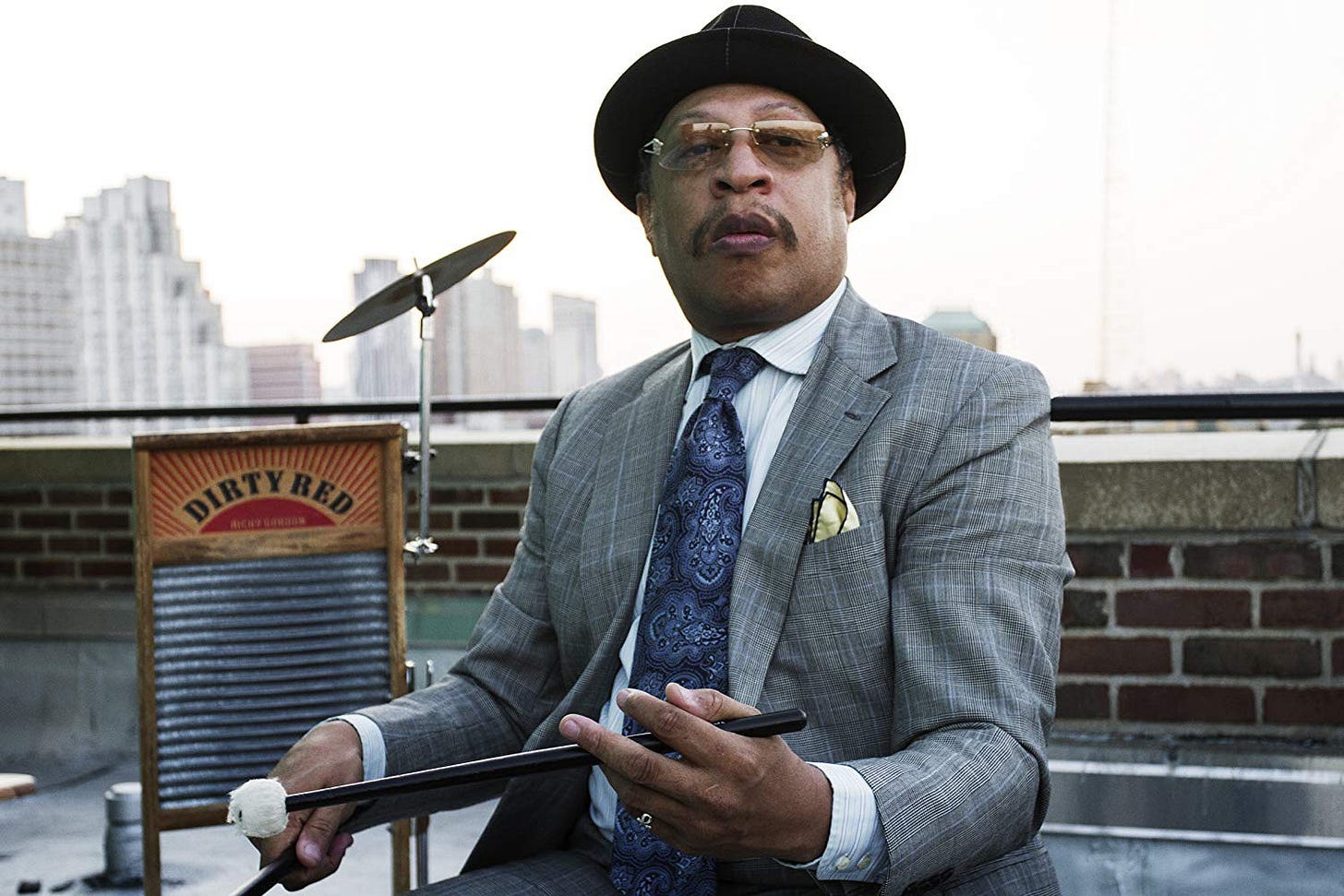A miraculous moment in music

Wynton Marsalis and I were in my hometown of Louisville in May 2002. Wynton was in town for the Kentucky Author Forum, and he was invited to play “My Old Kentucky Home” with the University of Louisville Band at the Kentucky Derby.
After the Derby, we were invited to a party at the home of a very prominent family in the Louisville area. Wynton, Frank Stewart, Jazz at Lincoln Center’s senior staff photographer, Ricky “Dirty Red” Gordon, Wynton’s friend and “spoons player extraordinaire” and I arrived at the party in the early evening. The festivities took place in the yard behind the house with a spectacular view of the Ohio River. A New Orleans Brass Band provided background music in the middle of the yard. We mingled among the 100 to 150 guests in the back yard for about an hour and a half. As the sun went down, the New Orleans Band left to set up in the dining room.
With the sun setting and the chill of the evening air emerging, we decided to begin to say our goodbyes and return to the hotel. On our way out, we passed through the dining room. The New Orleans Brass Band was playing a rendition of “Hello, Dolly!”
The lady of the house was in the dining room talking to one of her guests. Wynton walked up to her, grabbed her right hand, gently kissed it and swept her away for an impromptu dance. They danced with grace and fervor. Several guests came in from the yard to sneak a peek. After the dance, Wynton went up to the bandleader — the trumpet player, and asked if he could kindly join the band for a song or two. Having left his trumpet in the car, Wynton asked to borrow the bandleader’s instrument. He gladly obliged and handed over his instrument. Wynton lifted the glistening silver trumpet in the air, and with one note, struck up the band for some rousing New Orleans fare.
Guests began to pour in from outdoors to join the celebration. There wasn’t a stationary torso or immobile pair of feet in sight. The sound of Wynton’s horn accompanying the New Orleans Brass Band was too tempting of a call for the predominately African-American wait staff. Peering out from their respective wait stations, many of them threw protocol and tradition to the wind and put down their silver serving platters and joined in the dancing and merriment. One of the waiters removed the traditional mint juleps from his silver serving platter and placed them on the nearest flat surface. He went on to wave the platter in the air and tap on it in a syncopated manner as if it were a tambourine.
The lady of the house was lured by the waiter’s tapping a few feet from her and made her way toward him. Once beside him she joined him in a jubilant dance that was as spirited as anything that was taking place in the room. To aid him in his attempts to make a joyful noise with one of the tools of his trade, the lady of the house removed her (no-doubt expensive) bracelet from her wrist and handed it to him so that he could more effectively tap out the rhythms on the silver platter.
By this time everyone was in the dining room. Amid all of the celebration, an exuberant Ricky Gordon had stolen away and returned from the car with his metal washboard breastplate. With the breastplate on, Ricky became a human instrument while party guests lined up to make their own music on him with the fine silverware of the house.

Ricky “Dirty Red” Gordon — Photo by Collin Schroeder — © Collin Schroeder
Wynton and the band played four tunes over a 30-minute period. During this time something magical happened. For about a half an hour, it was as if the America that Dr. Martin Luther King imagined in his dreams had been realized. There was no regard to race, religion, sex or socio-economic status. For just a moment in time, the only thing that mattered was the music and our reaction to it and each other. The universal language of music and the democratic and integrating aspects of America’s own music, jazz, made it possible for the true American dream to be experienced — if only for a few fleeting moments.
When the music stopped everyone awkwardly gravitated back to their respective stations and positions at the party. Immediately after the last note, Wynton and I left the house and gave our ticket to the valet to retrieve our vehicle. As we waited there was an awkward silence between us that was indicative of our anticlimactic state. In the silence, we were both hoping that there was some way that the music would never stop.
Originally published in the Louisville Courier-Journal on November 11, 2004

